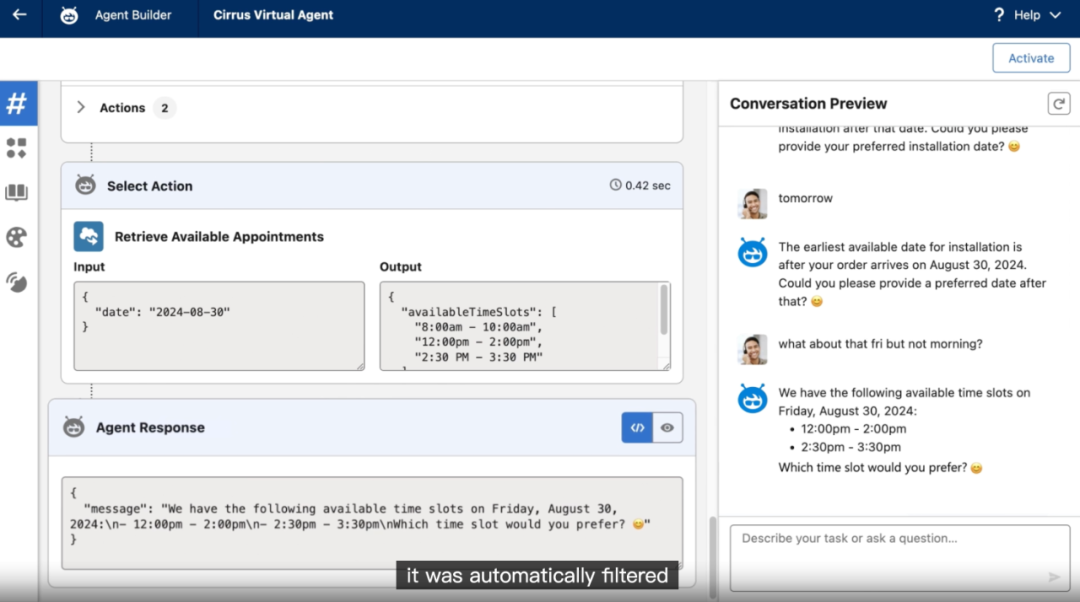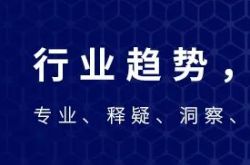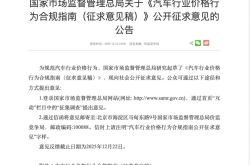Salesforce's International Version Counts Down to Service Termination: Migration or Replacement on the Horizon
![]() 04/28 2025
04/28 2025
![]() 933
933

Certainty in enterprise-level services is rarer than ever.
Author | Xiao Wei
Image Source | Shotu
In 2025, the CRM landscape in China is undergoing rapid transformation.
Beginning this year, Salesforce will gradually cease support for its international version services to enterprises in China. This shift is not abrupt but aligns with Salesforce's strategic pivot for the Chinese market.
Since its official launch on Alibaba Cloud in December 2023, Salesforce has accelerated the migration of its mainland China, Hong Kong, Macao, and Taiwan operations to Alibaba Cloud. International version customers form the backbone of Salesforce's business in China, and with the impending service termination, existing Chinese customers must grapple with challenges to business continuity, pushing them to a crucial decision-making juncture.
In an unpredictable market, the choices for existing customers are not straightforward. Unlike tool-based SaaS, CRM is deeply intertwined with a company's core business and data. CIOs must weigh factors such as product functionality, AI capabilities, cost, service, and ecosystem integration.
Due to regulatory and technical architecture differences, the Salesforce international version and the Alibaba Cloud version have always exhibited functional disparities. In the fast-evolving AI era, this gap may widen. Generational differences in AI technology could become critical variables in future corporate competition.

The departure of Salesforce's international version marks the end of an era.
Currently, Salesforce leads the global CRM field with a 21.7% market share in 2023, according to IDC data. However, in China, Salesforce has struggled to gain traction.
Salesforce entered the Chinese market as early as 2004 but faced slow business expansion. In 2023, for instance, Salesforce's revenue in China was approximately $300 million, accounting for roughly 1% of its total revenue of $31.4 billion for fiscal year 2023.
This underscores Salesforce's inadequate focus and investment in the Chinese market over the years. Under such circumstances, a strategic adjustment in China was inevitable. Eventually, Salesforce China announced its dissolution a few years ago, and the termination of international version services is merely the final act of this phase.
In 2019, Salesforce and Alibaba Cloud signed a strategic cooperation agreement, and four years later, launched Salesforce on Alibaba Cloud, signaling a new chapter in Salesforce's China strategy.
Since then, Salesforce has been responsible for product design, roadmaps, and backend support, while Alibaba Cloud has handled all customer-facing sales, operations, and ecosystem activities. Currently, Salesforce on Alibaba Cloud offers modules such as Sales Cloud, Service Cloud, Platform Cloud, and Industry Cloud, with updates synchronized with the international version three times a year.
Although Salesforce on Alibaba Cloud aimed to align closely with the international version, technical and regulatory reasons still result in notable differences. Many functional modules are either available with variations in China or temporarily unavailable.
Apart from Salesforce on Alibaba Cloud, Alibaba Cloud's marketplace still offers the Salesforce international version for sale. However, Alibaba Cloud clearly states on its official website that "before Salesforce is fully deployed in Alibaba Cloud data centers in China, you can still purchase the Salesforce international version through Alibaba Cloud to prepare for future migration to Salesforce on Alibaba Cloud." This indicates that reselling the international version is merely a transitional measure, with the ultimate goal being migration to Alibaba Cloud.
Salesforce's strategic shifts in China reflect that even international SaaS giants cannot penetrate the Chinese market solely through a "one-size-fits-all international version" approach without dedicated investment and localized operations. They must adapt to the evolving core demands of Chinese enterprises regarding data compliance, service response, AI technology, and more.
As Salesforce's international version in China enters its countdown to service termination, the decision-making window for indecisive existing customers is rapidly closing.


The Choice in the VUCA Era: Migrate or Replace
"We are facing a historic collapse of the global order," Ray Dalio, founder of Bridgewater Associates, recently commented.
Amidst geopolitical tensions in 2025, the trend towards deglobalization has intensified, further amplifying the characteristics of the VUCA era (Volatile, Uncertain, Complex, Ambiguous).
These sweeping environmental changes also present new challenges for enterprises selecting CRM systems: balancing technological advancement, long-term service availability, and localization adaptability.
For existing Salesforce international version customers, one option is migration.
Previously, using the Salesforce international version in China was criticized for slow response times and lengthy service feedback cycles. By migrating to Alibaba Cloud, enterprises will undoubtedly benefit from faster response speeds and address data compliance issues. However, it's essential to recognize the drawbacks of migration:
Firstly, the lack of core AI capabilities, exemplified by AgentForce. Launched in 2024, AgentForce is Salesforce's AI era trump card. Salesforce CEO Marc Benioff has repeatedly emphasized that AI and agent technology will bring unprecedented productivity, ushering in the era of "infinite labor." Due to regulatory restrictions, there are no clear deployment plans for AgentForce in China, potentially causing enterprises to miss out on AI era technological dividends and even create a generational gap in applications.

Beyond AI, the Salesforce 2024 Winter Release feature differences list on the Alibaba Cloud official website shows that many modules, including Data Cloud and CPQ, are still temporarily unavailable with no clear introduction timeline.
Secondly, there's a lack of deep integration with local ecosystems like WeChat. While Alibaba Cloud has launched the Internet Gateway CXG, which supports WeChat and WeChat Work data archiving and storage, and integrates Lingyang, Gaode Maps, and other Alibaba ecosystem products to compensate for Salesforce's local ecosystem shortcomings, its integration remains limited to shallow interactions, not offering customers more openness and options. In China's unique internet and mobile internet ecosystem, enterprises clearly need more extensive and deeper ecological connections and business innovations.
Thirdly, there's uncertainty about the future. In 2025, the increasingly complex and dynamic international landscape and market changes introduce more uncertainty to future cooperation between the two parties. In case of cooperation changes, customers may face the risk of secondary migration.
Moreover, existing Salesforce customers in China face high migration costs and technical complexity. Many enterprises have integrated numerous secondary developments and heterogeneous systems into their original international versions, resulting in migration cycles spanning several months.
Another option is replacement.
After over a decade of development, domestic CRM has continuously accumulated advantages in products, services, and ecosystems, becoming a force to reckon with in CRM selection.
While ensuring core functions are exceptional, domestic CRM also offers differentiated advantages in mobile social capabilities, ecosystem integration, and localized services. The domestic CRM field has long broken the market dominance of international vendors.
Taking Tencent Cloud's CRM Salesforce as an example, it has been selected for the Gartner SFA (Sales Force Automation) Magic Quadrant for several years, signifying its product and technical capabilities are on par with international vendors. Through integration with the Tencent ecosystem, Salesforce has achieved deep connections with collaboration tools like WeChat Work and Tencent Meeting, making it a typical case of collaborative innovation between CRM service providers and platform technology enterprises. According to public reports, global enterprises such as Schneider Electric, Hytera, and BGI have already replaced their Salesforce systems with Tencent Cloud's CRM Salesforce.
Furthermore, the rise of domestic large models like DeepSeek, Hunyuan, and Doubao has positioned domestic CRM on par with their international counterparts in integrating AI large models, agents, and CRM core scenarios to explore AI innovations that better cater to the Chinese local market.
However, compared to Salesforce's global footprint, Chinese CRM vendors still need long-term cultivation for market expansion and brand recognition overseas.
Conclusion
In the VUCA era, certainty is scarcer for enterprises than ever before.
The departure of Salesforce's international version is not only a microcosm of the "localization failure" of international SaaS giants in the Chinese market but also presents a historic opportunity for domestic CRM. The strategic migration of international giants and the robust rise of local players are intertwined, reshaping the underlying logic of the Chinese enterprise service ecosystem.
Domestic CRM is emerging as a "deterministic capability builder," providing enterprises with digital value that transcends cycles, making business continuity no longer reliant on a single vendor but built on the solid foundation of the local ecosystem.
END This article is an original work of "Intelligent Evolution Theory." Welcome to follow us.






